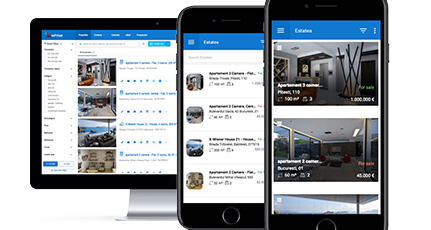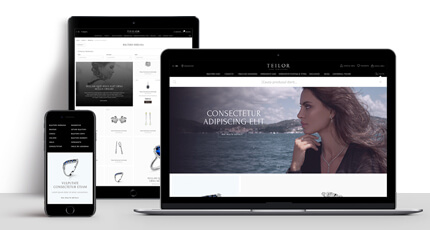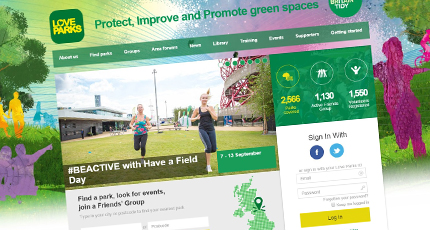We’ll start by saying that an enterprise application is, first of all, incredibly precise – its purpose is to solve a problem or enhance an already existent solution. Second of all, is built for mission critical use cases, that means it is essential to the operations, whether it be to increase efficiency or communication (within the organization or with the clients) to name a few.
Gartner, leading research and advisory company present in more than 100 countries, defines enterprise applications as “designed to integrate computer systems that run all phases of an enterprise’s operations to facilitate cooperation and coordination of work across the enterprise. The intent is to integrate core business processes (e.g., sales, accounting, finance, human resources, inventory and manufacturing). […] Enterprise software is expanding its scope to link the enterprise with suppliers, business partners and customers.”
What makes
enterprise-grade?
Considering the core features, engineering, and characteristics necessary to make an app enterprise-grade is relatively easy to understand why some software are charged more than others.
The main differentiator is open-source. A lot of the open-source applications and data services come in 2 main versions – community edition and enterprise edition. The community version is mainly free, with no rights to commercialization, and some features will be dynamic and changeable. An enterprise edition of the same software will have its code locked down (that means it is more secure than its free version), will cost money that usually covers maintenance, service, and support.
Besides these reasons stated above, the reason why an enterprise-grade application is greater than receiving support and updates resides in the fact that there is a major difference in internal engineering between enterprise and community edition softwares.
Deeper differentiating factors
An enterprise application will offer an even deeper level of architectural consideration for both development and operation (a state called ‘production’ in the language of software developers). In other words, an enterprise application is meant to increase speed, scalability, and for all the data flow it will have to deal with in its post-operationalized state to run smoothly.
Furthermore, an enterprise application will be better suited for auditing. It means that the data feed into it can be better used for reports on profit and loss and extend into compliance regulations. Simultaneously, it will be more reliable and will have better end-to-end encryption, as it would have done extensive quality assurance and stability improvement testing. An enterprise application is also configured to meet the requirements of secure production environments.
Great examples of enterprise applications with proven success

Extended features & optimizations for an HR solution – nGAGE
HR processes made-easy through extended features and optimizations added on an existing solution: outsourcing processes, communication & invoicing across three levels, involving multiple contractors, clients, and cost centers. The enterprise app also managed to:
- eliminate redundant and time-consuming activities (for all users types: recruiters, employees, candidates);
- provide an optimized user experience through intuitive design, tools, and features.
Read More about HR enterprise solution
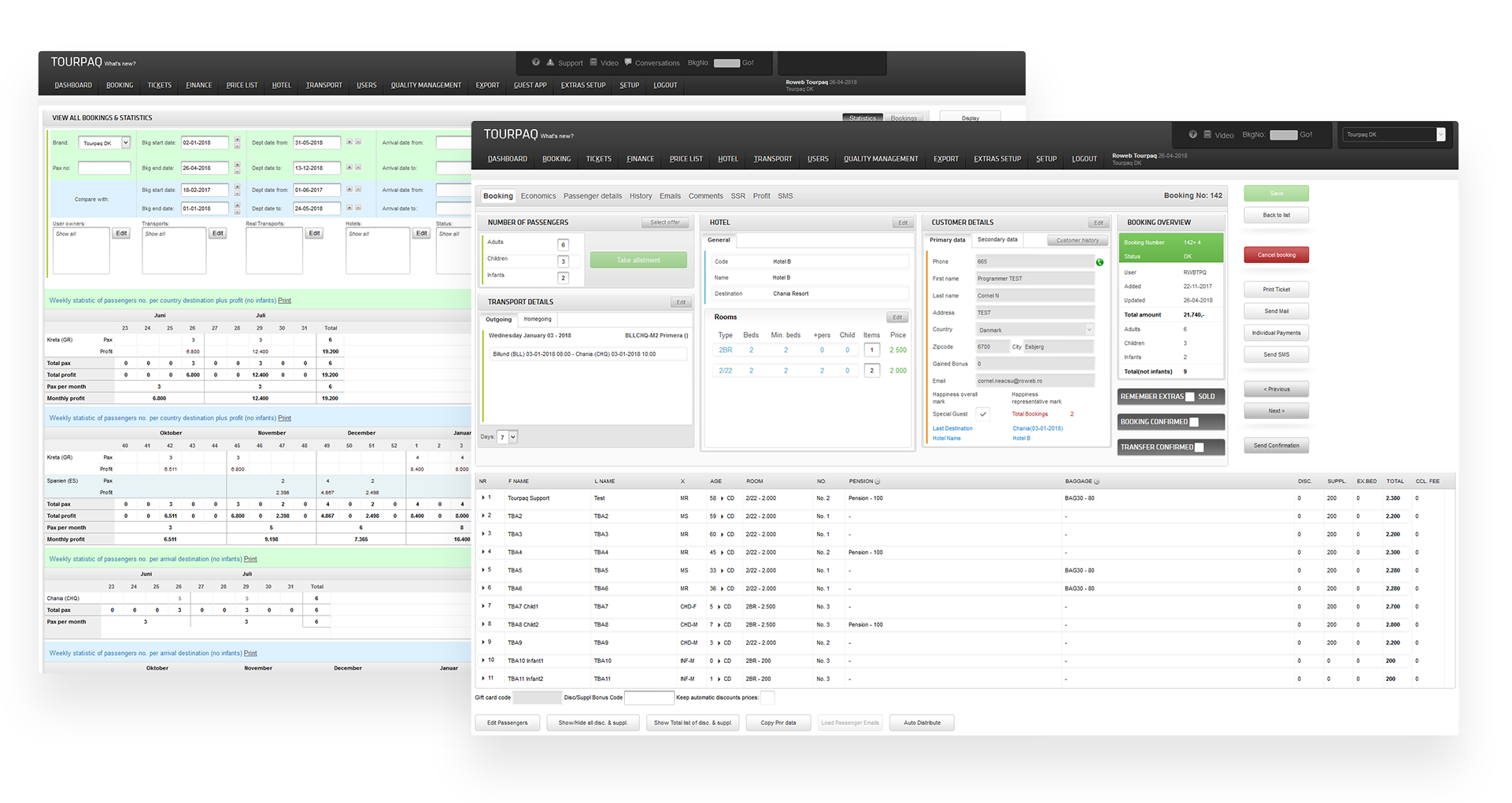
Tour operator management system
In this particular situation we had to enhance an already existent software solution for our client, Tourpaq ApS. Their solution included data structure and SEO tools, finance management and payment monitoring tools, ticketing and credit management, automatic price Optimization tools and, CRM and marketing solutions.
They needed a more user-friendly platform, with a single dashboard that could encompass all the activities performed by the users. Thus, we implemented the following features:
- pricing;
- offers;
- availability;
- online sales;
- invoices;
- due payments;
- real-time reports;
- data visualization;
- price control automation;
- integration with multiple 3rd party systems (such as GDS, insurance companies, SMS or email systems)
We also developed 2 mobile apps for this particular client in order to complete its enterprise solution and offer the full array of services.
- Tourpaq destination app is developed in order to help guides and tourists get in touch and enables tourist guides to sell excursions faster, handle the issues encountered by tourists and an overall way for people to buy the experience.
- Tourpaq guest app was developed in only 3 months and is meant to help the end-user to have a fully immersive holiday, by having access to real-time visitor information, details, updates, linked to the booking and inspiring ideas of what to visit.
Read all about this enterprise solution here
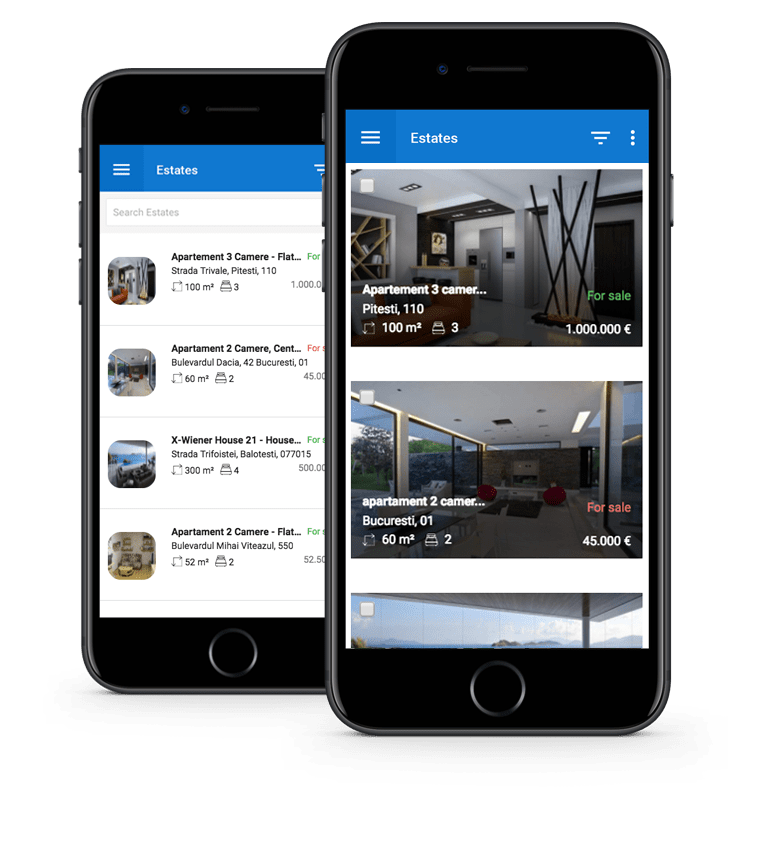
Real Estate CRM
This project did not have clear requirements from the head start mainly because this type of project involves an ongoing development process, where together with the client we discuss workflows, do the necessary planning, identify ways to improve processes and add useful features.
We upgraded a platform that started in 2004 and was being by real estate agents throughout Europe. They required a module type solution with complex functionalities which could be easily adapted to future developments for managing websites, calendar, estates, mailings, contacts, invoicing, workflow, marketing and canvassing.
Read more about how we managed this complex enterprise development project
Not sure what type of digital solution best suits your company’s interests?
Get advice from Roweb’s experts
What can we create for you
- Automated billing systems that are safe for you and for your clients
- Customer Relationship Management (CRM) applications
- Email marketing systems that keep your prospects engaged
- Content management that will keep your visitors up to date
- HR Management that keep track of your employees
- Enterprise Portals

Reasons why Roweb is the software company appropiate for your next enterprise solution
TECHNOLOGIES THAT WE USE:








METHODOLOGIES
- Agile
- Scrum
- Kanban
- Waterfall
ROLES WE PROVIDE
- Project managers
- Business analysts
- Developers
- Q&A specialists
- Scrum masters
- UX Designers

